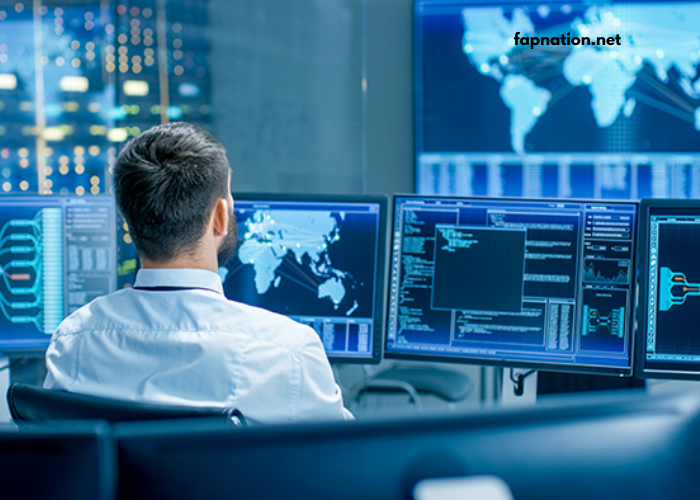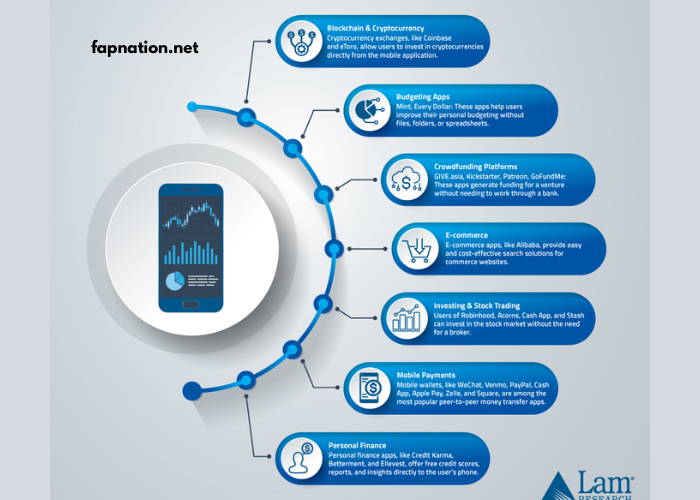In today’s fast-paced world, technological advancements continue to shape industries, creating opportunities for growth, efficiency, and innovation. As we step into 2025, the landscape of global industries is being dramatically transformed by a range of emerging technologies. From artificial intelligence (AI) and blockchain to quantum computing and robotics, these innovations are not only enhancing productivity but also redefining how businesses operate. In this article, we’ll explore the latest technology trends revolutionizing industries in 2025.
1. Artificial Intelligence (AI) and Machine Learning (ML)
AI-Powered Automation
Artificial Intelligence and Machine Learning have already had a profound impact across various industries, but their role is expected to grow even more significant in 2025. AI technologies are driving automation and enhancing decision-making capabilities, providing businesses with smarter ways to operate.
In 2025, industries such as manufacturing, healthcare, and finance are adopting AI to automate routine tasks and provide predictive analytics. For instance, AI algorithms in manufacturing can detect anomalies in production lines, allowing for predictive maintenance and reducing downtime. Similarly, AI in healthcare is revolutionizing diagnostics, enabling faster and more accurate disease detection through image recognition and data analysis.
AI in Customer Experience
AI is also transforming customer service. Chatbots and virtual assistants are now commonplace, providing immediate responses to customer queries. In 2025, these tools will evolve to offer more personalized, human-like interactions, using advanced natural language processing (NLP) capabilities. Companies will leverage AI to deliver tailored customer experiences, improving customer satisfaction and engagement.
2. Blockchain Technology
Revolutionizing Supply Chains
Blockchain technology is expected to become an integral part of supply chain management by 2025. By providing a transparent, secure, and decentralized ledger, blockchain can streamline the tracking of goods, reduce fraud, and improve efficiency. In industries like logistics, blockchain will offer real-time tracking and authentication, ensuring that products are delivered with full traceability.
Furthermore, blockchain’s secure and transparent nature will help companies ensure compliance with regulations, especially in sectors like pharmaceuticals, where the traceability of products is crucial.
Smart Contracts
Smart contracts are self-executing contracts with the terms of the agreement directly written into code. By 2025, industries such as real estate, insurance, and finance will increasingly rely on blockchain-based smart contracts to facilitate transactions. These contracts automate and expedite processes, reducing the need for intermediaries and lowering transaction costs.
3. 5G and Connectivity
Ultra-Fast Internet for IoT Devices
With the ongoing rollout of 5G networks, industries across the globe are experiencing unprecedented levels of connectivity. The ultra-fast internet speeds and low latency of 5G will unlock new possibilities for the Internet of Things (IoT), enabling the seamless connection of devices in industries such as manufacturing, healthcare, and smart cities.
In 2025, 5G will power smart factories, where IoT devices communicate in real-time, optimizing production processes and reducing waste. In healthcare, 5G will enable remote surgeries and real-time patient monitoring, enhancing the delivery of care, particularly in rural or underserved areas.
Autonomous Vehicles
One of the most anticipated applications of 5G technology is in the development of autonomous vehicles. In 2025, self-driving cars, trucks, and drones will benefit from ultra-low latency 5G networks, enabling them to communicate with one another and with infrastructure in real-time. This will enhance safety, reduce traffic congestion, and enable the more widespread use of autonomous transportation.
4. Quantum Computing
Solving Complex Problems
Quantum computing is another frontier technology that is gaining traction in 2025. With the ability to process vast amounts of data at unprecedented speeds, quantum computers have the potential to solve complex problems that are currently beyond the capabilities of classical computers.
In industries such as pharmaceuticals and materials science, quantum computing will accelerate the discovery of new drugs and materials by simulating molecular interactions with incredible precision. In finance, quantum algorithms will help analyze massive datasets and optimize investment strategies, making it easier to detect patterns and manage risks.
Enhancing Cybersecurity
Quantum computing is also expected to have a transformative impact on cybersecurity. While quantum computers can theoretically break existing encryption methods, they will also lead to the development of quantum-resistant encryption techniques. By 2025, industries will be utilizing quantum encryption to protect sensitive data, ensuring greater security in sectors like banking, healthcare, and government.
5. Robotics and Automation
Advanced Robotics in Manufacturing
Robotics continues to be a game-changer in various industries, particularly in manufacturing. In 2025, the next generation of robots will be more agile, intelligent, and capable of collaborating with human workers in a shared workspace. These advanced robots will use AI to optimize production processes and adapt to changing conditions in real-time, further enhancing the efficiency and flexibility of manufacturing operations.
Collaborative robots, or cobots, will work alongside human employees to perform repetitive tasks, allowing workers to focus on more complex and creative responsibilities. This human-robot collaboration will lead to improved productivity and reduced labor costs.
Robotics in Healthcare
In healthcare, robotics is poised to revolutionize surgery, patient care, and rehabilitation. By 2025, robotic surgery systems will become more precise, enabling minimally invasive procedures with faster recovery times and fewer complications. Robotic exoskeletons will also help individuals with mobility impairments regain movement, enhancing the quality of life for patients with disabilities.
6. Edge Computing
Real-Time Data Processing
Edge computing is a decentralized computing model that allows data to be processed closer to the source, rather than relying on a central data center. In 2025, edge computing will become crucial in industries where real-time data processing is critical, such as healthcare, manufacturing, and transportation.
For example, in healthcare, edge computing will enable real-time monitoring of patient vitals and provide instant insights for medical professionals. In smart factories, edge computing will allow machines and sensors to make quick decisions without relying on cloud-based systems, improving efficiency and reducing downtime.
Enhancing IoT Capabilities
As IoT devices proliferate across industries, edge computing will become increasingly important for managing the massive volumes of data they generate. By processing data at the edge of the network, companies can reduce latency, improve data privacy, and enhance the performance of IoT applications.
7. Extended Reality (XR)
Virtual Reality (VR) and Augmented Reality (AR)
Extended Reality (XR), which encompasses Virtual Reality (VR), Augmented Reality (AR), and Mixed Reality (MR), is set to make a significant impact on various industries by 2025. VR and AR are already being utilized in fields such as education, retail, and training, and their influence is expected to grow in the coming years.
In 2025, businesses will use VR and AR for more immersive and interactive experiences. For instance, in retail, customers will be able to try on clothes virtually or explore products in 3D, enhancing the shopping experience. In education, VR will allow students to participate in immersive learning experiences, such as historical reenactments or virtual science experiments.
XR in Healthcare
XR technologies will also have a profound impact on healthcare. Surgeons will use AR glasses to overlay digital information onto a patient’s body during surgery, enhancing precision. Additionally, XR will be used for therapy and rehabilitation, helping patients recover faster by engaging them in virtual environments that promote healing and cognitive recovery.
8. Biotechnology and Health Tech
Personalized Medicine
The field of biotechnology is rapidly advancing, with a particular focus on personalized medicine. By 2025, healthcare providers will use genetic information, wearables, and AI to offer customized treatments tailored to an individual’s unique genetic makeup and lifestyle. This personalized approach to medicine will result in more effective treatments and better patient outcomes.
Wearable Health Devices
Wearable devices, such as smartwatches and fitness trackers, will continue to evolve and provide more sophisticated health monitoring capabilities. By 2025, these devices will be able to track a broader range of health metrics, such as blood glucose levels, blood pressure, and even mental health indicators, giving individuals more control over their health and wellbeing.
Conclusion
As we move into 2025, the latest technology trends are reshaping industries and creating new opportunities for growth, efficiency, and innovation. From AI and blockchain to quantum computing and robotics, these technologies are revolutionizing how businesses operate, making them more agile, intelligent, and connected. As industries embrace these advancements, they will be better equipped to address the challenges of the future, improve customer experiences, and deliver enhanced value to stakeholders.



